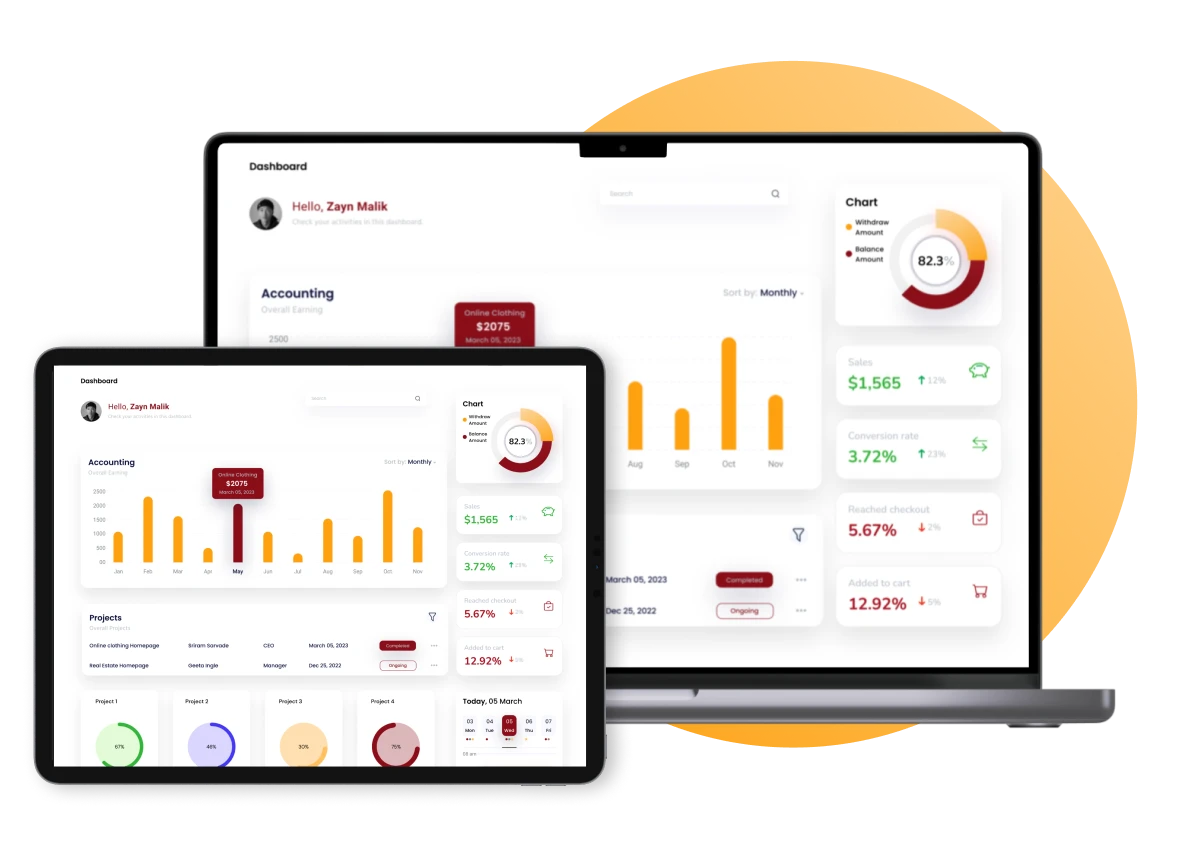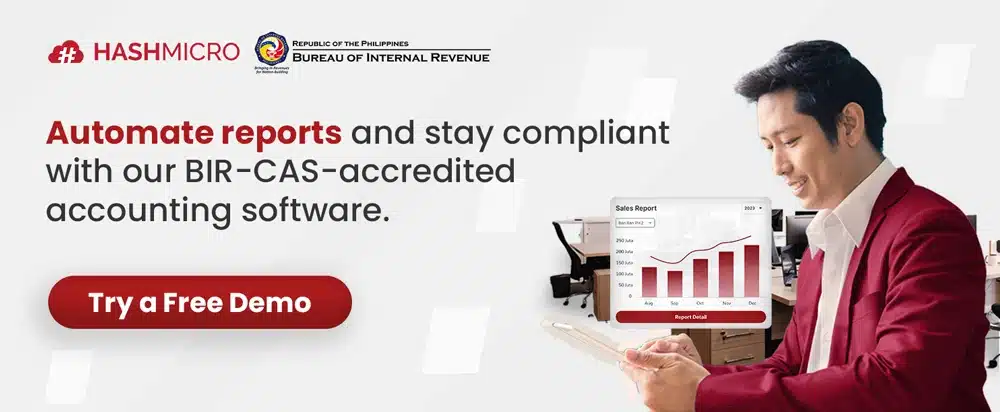Imagine mo ang negosyo mo na parang busy na palengke—vendors lining up, eager to tally the day’s credits and debits. In this marketplace, account payable (AP) stands as the vigilant gatekeeper, ensuring every transaction is accounted for and every payment is scheduled on time.
However, without advanced software, this process often becomes a breeding ground for errors, such as miscalculations, delayed reporting, and compliance issues. This is where technology steps in—transforming the chaotic waves into a smooth sail.
Embracing the digital revolution in accounts payable can turn potential chaos into a strategic advantage, enhancing not just efficiency but also your company’s financial integrity. Read on to discover how you can fix it!
Key Takeaways
|
Table of Contents

What is Account Payable?
Accounts payable (AP) refers to the short-term debts a company owes for goods or services purchased on credit. Mismanagement of AP can lead to late payments, strained vendor relationships, and cash flow disruptions. AP will appear on the liability sheet on a company’s balance sheet.
Automating AP reduces manual errors and ensures payments are made on time, improving cash flow and supplier relations. This streamlined process can become the safeguard of the company’s financial health and strengthen vendor partnerships.
Critical Role of Account Payable
Efficient accounts payable (AP) management is essential for maintaining cash flow and operational stability. It can also help prevent issues related to accounting fraud. By keeping accurate records, businesses can secure early payment discounts. This not only improves supplier relationships but also enhances future negotiation power.
Proper AP management also supports a good credit rating, which is key for securing favorable loan terms and external financing. Companies with strong credit can negotiate lower interest rates and better terms, ensuring long-term financial health while leveraging AP for strategic growth.
Account Payable Staff Responsibilities and Duties
Accounts payable staff are responsible for more than just handling payments. They also play a key role in ensuring that the company adheres to financial regulations and policies.
- Financial Reporting: Preparing reports like aged payables to manage short-term financial obligations.
- Policy Enforcement: Making sure company policies are followed to avoid unauthorized purchases.
- Audit Support: Providing necessary documents for audits to ensure compliance with regulations.
- Invoice Processing: Reviewing and processing invoices for company purchases.
- Payment Processing: Ensuring timely payments to suppliers to maintain good relationships and avoid late fees.
- Reconciliation: Matching invoices with purchase orders and receipts for accurate record-keeping.
- Vendor Communication: Managing communications with suppliers about billing and payments.
These additional duties ensure that the company maintains financial discipline and meets external audit requirements, reinforcing the organization’s overall financial health. To automate these tasks, you can try HashMicro’s accounting software free demo here.
How to Count Accounts Payable
Calculating accounts payable (AP) involves adding up all outstanding liabilities that a company owes to its suppliers for goods or services purchased on credit. To determine the total AP, businesses must collect all unpaid invoices and credit transactions and sum these amounts.
This figure is listed on the balance sheet under current liabilities, representing short-term debts to be settled within a specific timeframe.
Example:
Let’s assume a company owes:
- $10,000 to Supplier A for office supplies,
- $5,000 to Supplier B for manufacturing materials,
- $3,000 to Supplier C for consulting services.
The total accounts payable (AP) is calculated as:
Automating this process with Accounting Software ensures real-time tracking of all payables, streamlining calculations and ensuring accuracy in managing financial obligations.
Also read: Rebate Accounting: Definition, Types, Solutions
When to Use Accounts Payable?
Accounts payable plays a vital role in managing business transactions. It is particularly useful when companies purchase goods or services on credit and manage their cash flow effectively.
- Purchasing on Credit: AP tracks purchases where payment is deferred, allowing businesses to manage short-term liabilities.
- Managing Cash Flow: Companies may strategically delay payments to optimize cash flow while maintaining strong supplier relationships.
- Automated Systems: Tools like purchase-to-pay improve efficiency, automating the entire process from ordering to payment and ensuring timely fulfillment of financial obligations.
Using accounts payable properly helps businesses maintain operational efficiency, improve supplier relations, and manage their cash flow more effectively.
Automate Your Accounts Payable Creation with HashMicro’s Accounting Software
Managing accounts payable (AP) can be a complex and time-consuming task. To streamline this process and minimize the risk of manual errors, automation through specialized accounts payable software has become essential. HashMicro’s Accounting Software is designed to automate accounts payable processes.
Some features that will help you in managing AP are:
- Bank Integrations: This feature automates bank reconciliation with bank account reconciliation software, reducing manual errors and accelerating the process of matching financial transactions with bank statements, which is essential for effective accounts payable management.
- Multi-level analytical: Allows businesses to track and report on AP activities across various branches or projects, offering detailed insights that support better decision-making.
- Profit & Loss vs. Budget & Forecast: This feature helps businesses compare actual spending, including AP, against the budget and forecasted amounts, ensuring that companies manage their expenses efficiently and avoid overspending.
- Automated Currency Update: This feature is especially useful for businesses dealing with international suppliers, ensuring accurate and up-to-date currency conversions in your AP processes, and preventing discrepancies and manual errors.
- Comprehensive Invoicing: Simplifies the process of managing invoices, payments, and reconciliations, reducing manual workload and errors in accounts payable.
We know that with so many accounting system software available, finding a trusted vendor can be challenging. HashMicro stands out as a reliable solution, offering a comprehensive system to focus on strategic growth while leaving the complexities of AP management to a robust, trustworthy platform.
Conclusion
Effectively managing accounts payable (AP) is crucial for maintaining cash flow, vendor relationships, and overall financial health. Manual processes can lead to errors and strained partnerships. By automating everything from invoice management to payment tracking, businesses can focus on growth while avoiding the risks of manual processing.
With countless software options available, finding a trusted vendor can be overwhelming. HashMicro’s Accounting Software stands out by offering comprehensive features tailored to streamline accounts payable, from bank integrations to multi-level analytics. Ready to enhance your financial management? Try our free demo today!
Frequently Asked Questions
-
What is the role of an accounts payable?
Accounts payable manages a company’s short-term obligations, ensuring timely payments to suppliers and vendors. It helps maintain cash flow, strengthen vendor relationships, and avoid penalties.
-
What is account receivable and payable?
Accounts receivable is money owed to a company by its customers, while accounts payable is money the company owes to its suppliers. Both are essential for managing cash flow and financial health.
-
What does it mean when an account is payable?
An account payable is a company’s obligation to pay for goods or services received on credit. It represents a short-term debt that must be settled with the vendor or supplier.



























